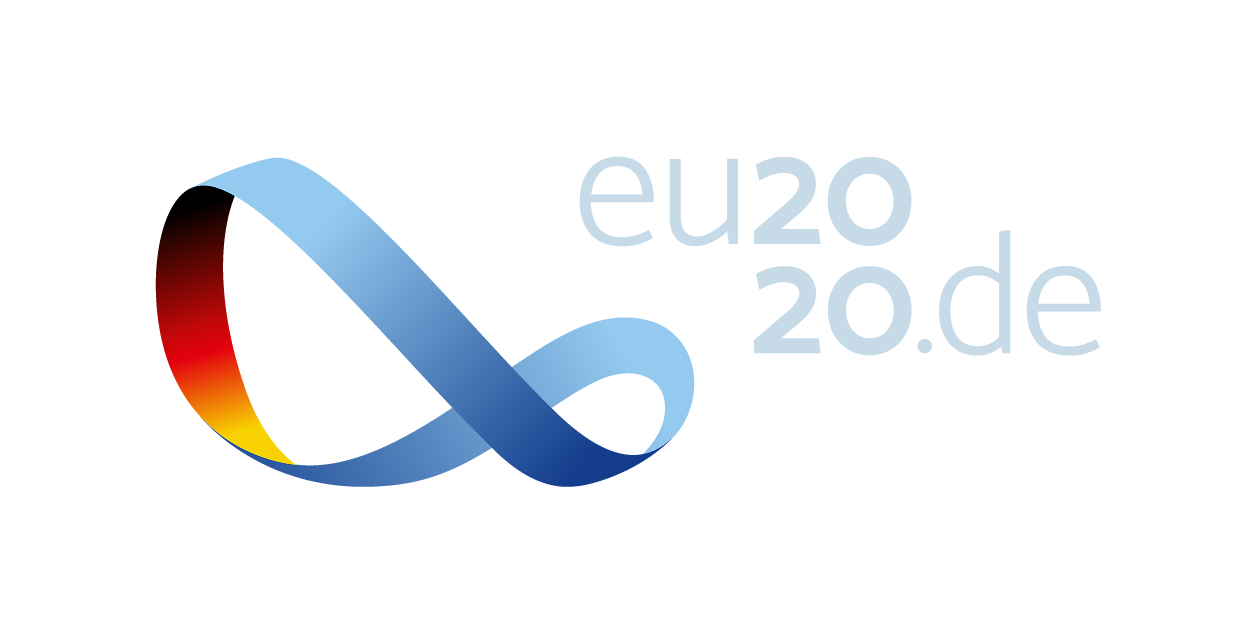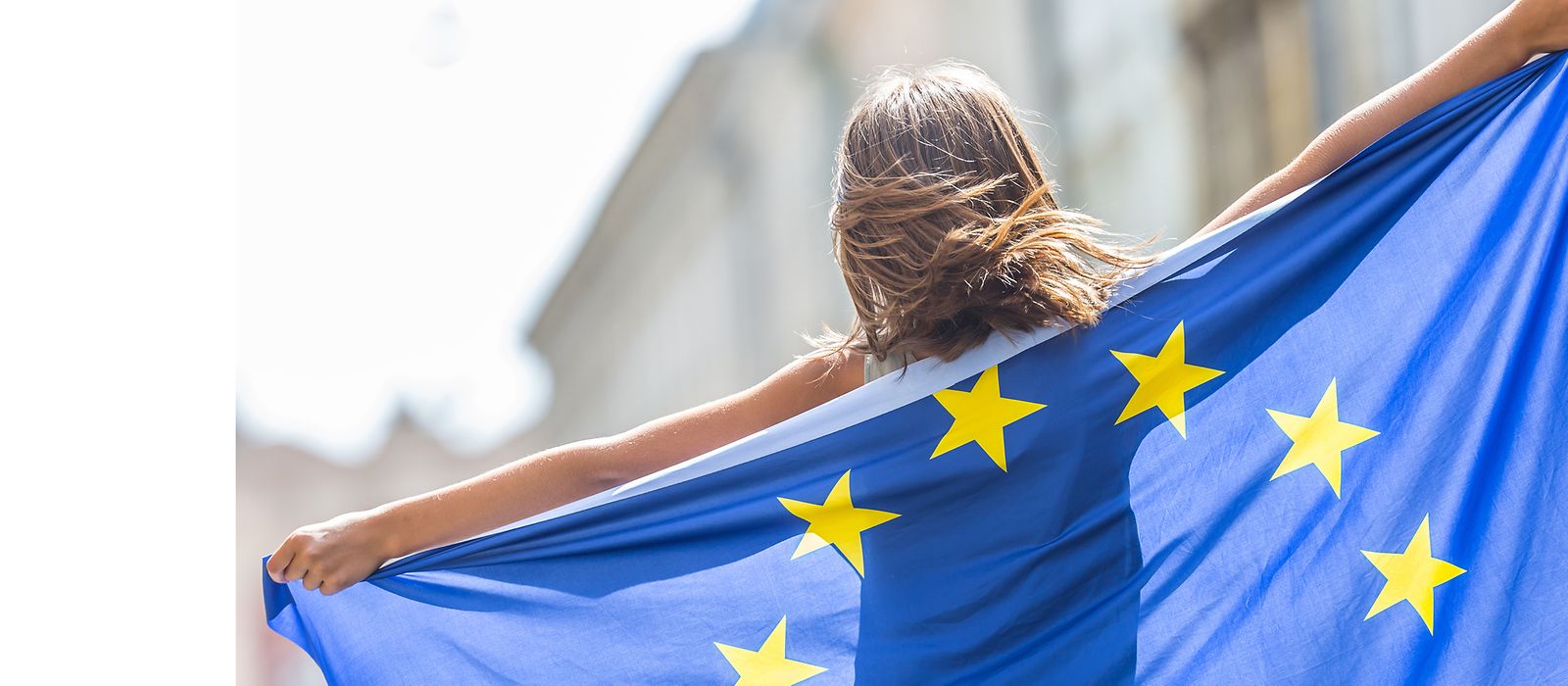
Together for Europe's recovery.
Emerging stronger from the crisis together.
The COVID-19 pandemic has plunged Europe into a state of emergency. In many countries, public life came to a standstill for several weeks. The economic and social consequences of this will be felt in Europe for a long time yet.
People turned to their national governments for first responses to the crisis. At the same time, European cooperation looked promising. Countries supported each other and sent relief goods across borders. German hospitals took patients from other countries. The crisis was also quickly responded to at European level: the EU has agreed on several comprehensive rescue packages - in order to support Member States that were hit hard by the COVID-19 pandemic, but also companies, employees and particularly vulnerable groups of society.
The crisis has also shown us what we lack when European achievements that have long since been taken for granted disappear. A Europe without freedom of movement and open borders is no longer imaginable.
Sharing means winning: cooperation makes us stronger.
During Germany's Presidency of the Council of the EU, it was crucial to tackle the effects of the crisis in Europe together.
Europe will emerge stronger from this crisis if its citizens recall the founding principle of the European idea: We are all better off in Europe if we cooperate and address problems together.
Europe started as a peace project based on cooperation in the coal and steel sectors. Today, the European Union works together in many areas - from food production to space technology. Over the past 70 years, this cooperation has delivered peace, stability and prosperity. Sharing means winning.
The European Union does well to remember what unites it. After all, people spent decades fighting for the idea of a united Europe. This idea has made Europe a dream destination for many. The task now is to preserve the achievements for future generations and to work together in order to ensure our continued well-being.
For renewed European cohesion.
In order for Europe to emerge from the crisis strong and in a spirit of solidarity, it is not only the European economy that needs to be strengthened but also European cohesion. The Federal Ministry for Family Affairs used Germany's Presidency of the Council of the EU to promote cohesion among Europeans.
Cohesion develops where people in Europe feel connected as neighbours - regardless of whether they come from Lithuania, Ireland or Greece. It is through this connection and the confidence in a united future that people are filling the European idea with life. They often do so every day anew.
For this to be even more self-evident, people need to be able to see in their personal lives that they are better off in a united Europe. For this reason, the Federal Ministry for Family Affairs focused on what constitutes a good life for people in Europe: young people taking part in political processes; women having the same opportunities as men; people actively participating in society - old and young alike, no matter where they are from.
The aim was to strengthen cohesion among Europeans so that many more generations to come will be able to benefit from the advantages of the European Union.
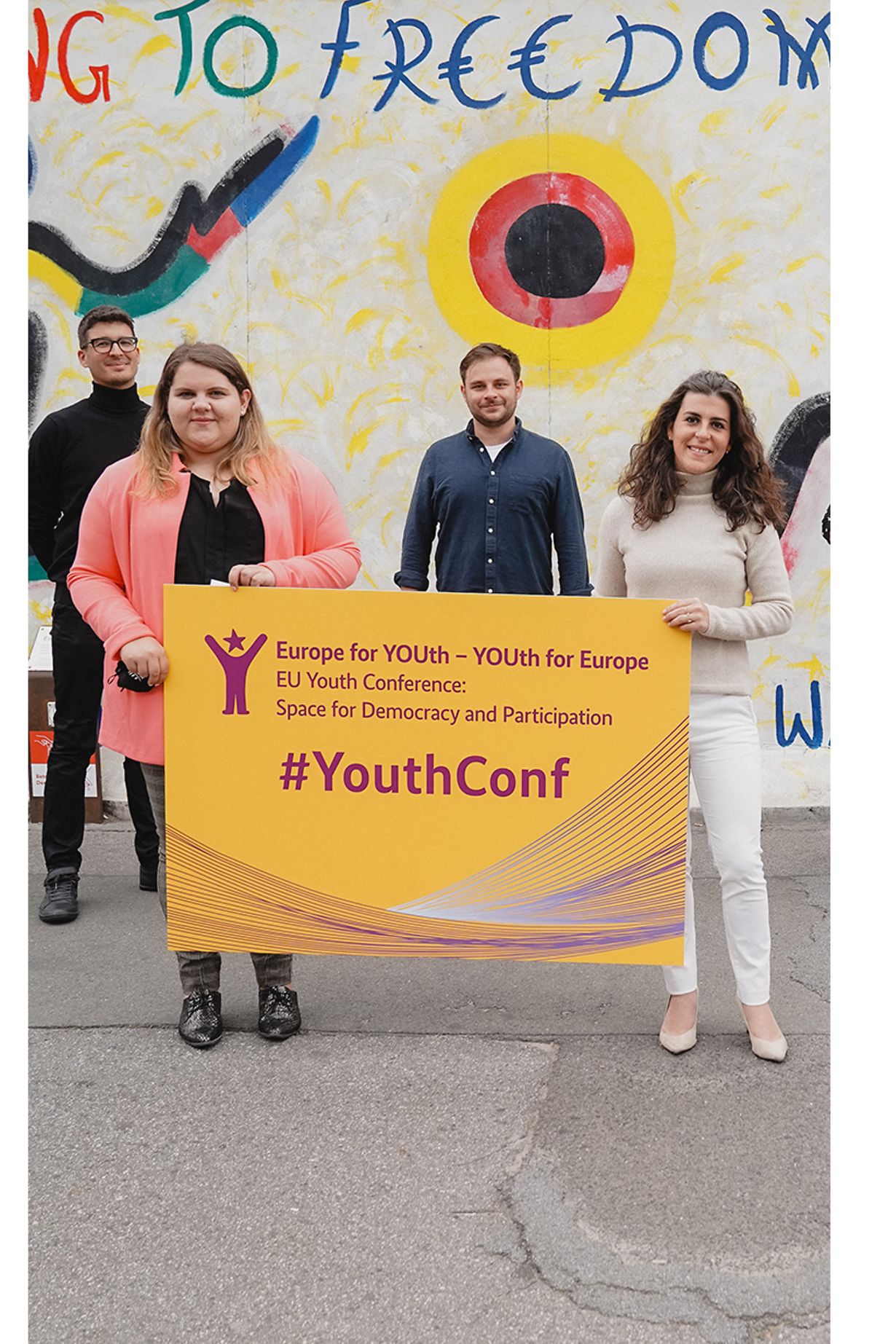
Europe for YOUth. YOUth for Europe.
Young people are full of enthusiasm for Europe. Over 70 percent of 16- to 26-year-old Europeans believe that their home country is better off within the EU. For many of them, the EU guarantees democracy.
The Federal Ministry for Family Affairs has been committed to strengthening trust in the EU so that this positive perception by young Europeans can withstand uncertain times.
Giving young people a voice.
Young people's views and ideas for democratic togetherness in Europe also need to get more attention at European level. To this end, the Federal Ministry for Family Affairs organised the EU Youth Conference, whose results also fed into the EU Youth Ministers' Council. The aim was to promote communication between young people so that they become actively committed to Europe.
In addition, the Federal Ministry for Family Affairs strengthens young people growing up, provides European impetus for further developing youth work in Europe and promotes the European perspective in child and youth services.
The Federal Ministry for Family Affairs exchanges information on good practices in democracy work with its European partners, e.g. on "Live democracy!", which is one of the largest democracy support programmes in Europe.
#YouthConf
The EU Youth Conference is a central tool for participation in the context of the EU Youth Dialogue on the topic of "Europe for YOUth - YOUth for Europe: Space for Democracy and Participation" The conference took place virtually from 2 to 5 October.
Comeback 2020
The return event in the European Solidarity Corps (ESC): From 23 to 25 October, returned volunteers exchanged experiences, took part in workshops and were introduced to other forms of civic engagement.
Videoconference of EU Youth Ministers
"Youth and Democracy" was one of the topics discussed at the Informal Videoconference of EU Youth Ministers, held on 30 November under the leadership of Federal Minister for Youth, Franziska Giffey. The event's main focus was a policy debate among the ministers on youth mobility under the impact of the coronavirus pandemic.
European Youth Work Convention
The European Youth Work Convention was held virtually at the beginning of December. Based on political decisions, in particular the European Youth Work Agenda developed under the German Presidency of the Council of the EU, participants from the areas of youth work practice, youth policy and youth research developed ideas and recommendations on how these political resolutions can be put into practice. At the end of the four-day digital specialist convention, which included workshops and speeches, the participants adopted a joint final declaration.

Women can do everything.
Nowhere else in the world do women enjoy as many freedoms and rights as in Europe. Seventeen out of the twenty countries worldwide in which women have the most comprehensive rights and opportunities are in Europe.
This was fought hard for. But there is still a lot to be done - this has become clearly visible during the COVID-19 crisis. After all, freedoms and rights do not automatically result in gender equality. In order for women to achieve their full potential and be treated fairly, the framework conditions need to be right - especially in times of crisis.
There are already many successful gender equality measures in place at federal level, for example the Transparency in Wage Structures Act or the national Violence against Women helpline. However, Germany can also learn a lot from its neighbours, for example regarding the reconciliation of working life as well as family life and care work.
#StrongerThanViolence
During the Presidency of the Council of the EU, the Federal Ministry for Family Affairs focused on promoting high standards throughout Europe for the protection of women against violence. As a result, a majority of gender equality ministers of EU member states and other countries agreed on 20 November to establish a Europe-wide single helpline for women affected by violence. In future, helplines for women are to be reached across Europe by phone on 116 016. The aim is to improve access to protection and counselling for everyone.
During the Presidency of the Council of the EU, there was also an exchange of experiences in the fight against violence, in particular of experiences and rapid responses during the COVID-19 crisis.
The Federal Ministry for Family Affairs has been active in combating violence against women for many years. A prime example in this regard is the "Stronger than Violence" initiative, which, since its launch in late 2019, has encouraged women to seek support and has made the available support services better known. Many partner organisations have already joined the initiative.
Promoting gender equality
On 1 December, the Council of the European Union (EU) adopted Council conclusions on tackling the gender pay gap. They include specific political guidance on how the individual EU member states can implement a more equal distribution of paid work and unpaid care work between women and men.
The Federal Ministry for Family Affairs promotes gender equality in working life. The aim is to reduce the gender pay gap in Europe. The COVID-19 pandemic has highlighted the fact that unpaid (care) work is mainly carried out by women. They are therefore not able to engage in paid work to the same extent as men.
Trio Presidency Declaration on Gender Equality
On 6 July, Federal Minister for Women, Franziska Giffey, signed the joint Trio Presidency Declaration on Gender Equality together with her Portuguese counterpart, Mariana Vieira da Silva, and her Slovenian counterpart, Janez Cigler Kralj. In the declaration, the three EU member states committed themselves to working closely together in the field of gender equality.
Other key events and results
"Planet 50:50 - Europas Beitrag zu den SDGs" - this was the title of a virtual conference to promote gender equality at global level, which took place on 15 October. Achieving gender equality globally is one of 17 Social Development Goals of the United Nations' Agenda 2030.
On 13 October, Federal Labour Minister Hubertus Heil and Federal Minister for Family Affairs, Senior Citizens, Women and Youth, Franziska Giffey, chaired a meeting of the EU’s employment and social policy ministers. The discussion focused on gender equality in the labour market in the EU. The key outcomes are summarised in the Report of the Council of the EU.
"Gender Equality in Working Life" and "Violence against Women" were the key topics discussed at a videoconference on 3 July with Franziska Giffey. The Federal Minister for Equality informed the European Parliament's Committee on Women's Rights and Gender Equality about Germany’s gender equality priorities during its Presidency of the Council of the EU. A recording of the conference is available on the European Parliament's website.
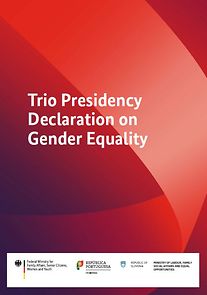
Trio Presidency Declaration on Gender Equality
Germany, Portugal and Slovenia present this Trio Presidency Declaration on Gender Equality
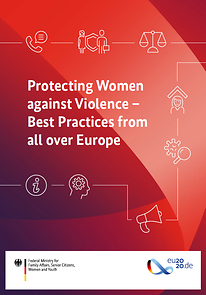
Protecting Women against Violence
Best Practices from all over Europe. Key findings of the Informal Meeting of EU Gender Equality Ministers on 20 November 2020.
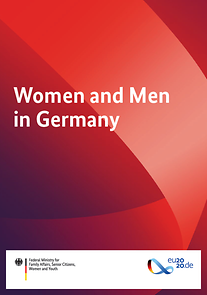
Women and Men in Germany
This brochure illustrates where Germany stands in terms of gender equality.
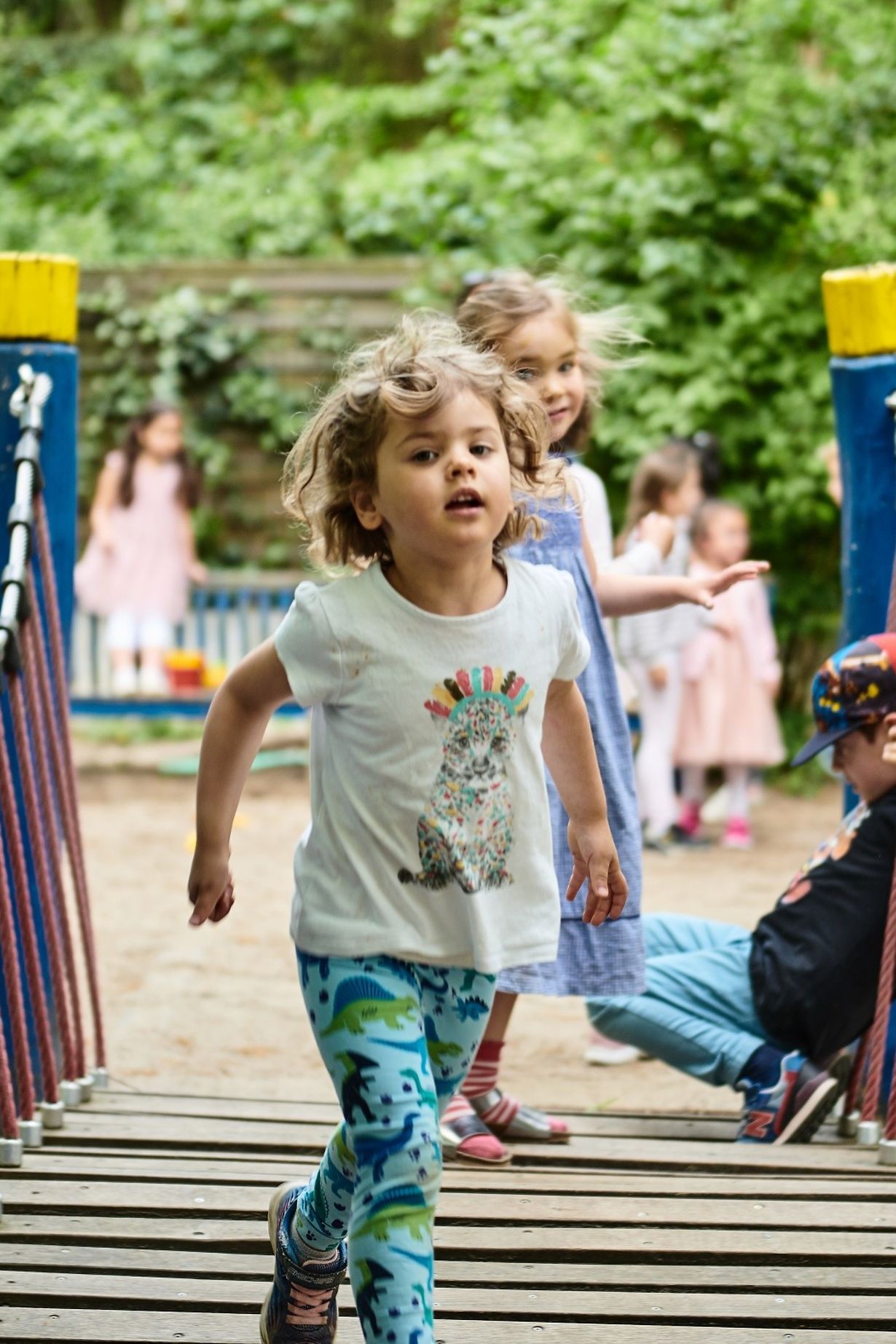
So that every child will make it.
Children and families are to be strengthened, enabling them to emerge well from the crisis. The Federal Ministry for Family Affairs was aware that the measures taken to curb the COVID-19 pandemic also put - and continue to put - a financial burden on many families and children. Therefore, combating child poverty continues to be a key challenge. In addition, a special focus was on the particular need for protection of children and young people. This also included access to support services. This is why the Federal Ministry for Family Affairs welcomes the EU Strategy on the Rights of the Child and the EU Child Guarantee announced by the European Commission, and will be accompanying the social debate on it - also after Germany's Presidency of the Council of the EU.
Conference "Overcoming COVID-19 - jointly developing prospects for strong families"
What are the biggest challenges for families during the pandemic? How can families be strengthened? These questions were the focus of an international online conference on 24 November. Federal Minister for Family Affairs, Franziska Giffey, presented the measures taken by Germany to provide practical assistance to families.
Joint declaration for strong families and against child poverty
Families and children who are at risk of poverty and social exclusion and who are particularly affected by the COVID-19 pandemic are to be strengthened. This is what 24 member states of the European Union call for in a Joint Declaration. In addition, the 24 states welcome the announcement made by the European Commission to present a Recommendation for a European "Child Guarantee".
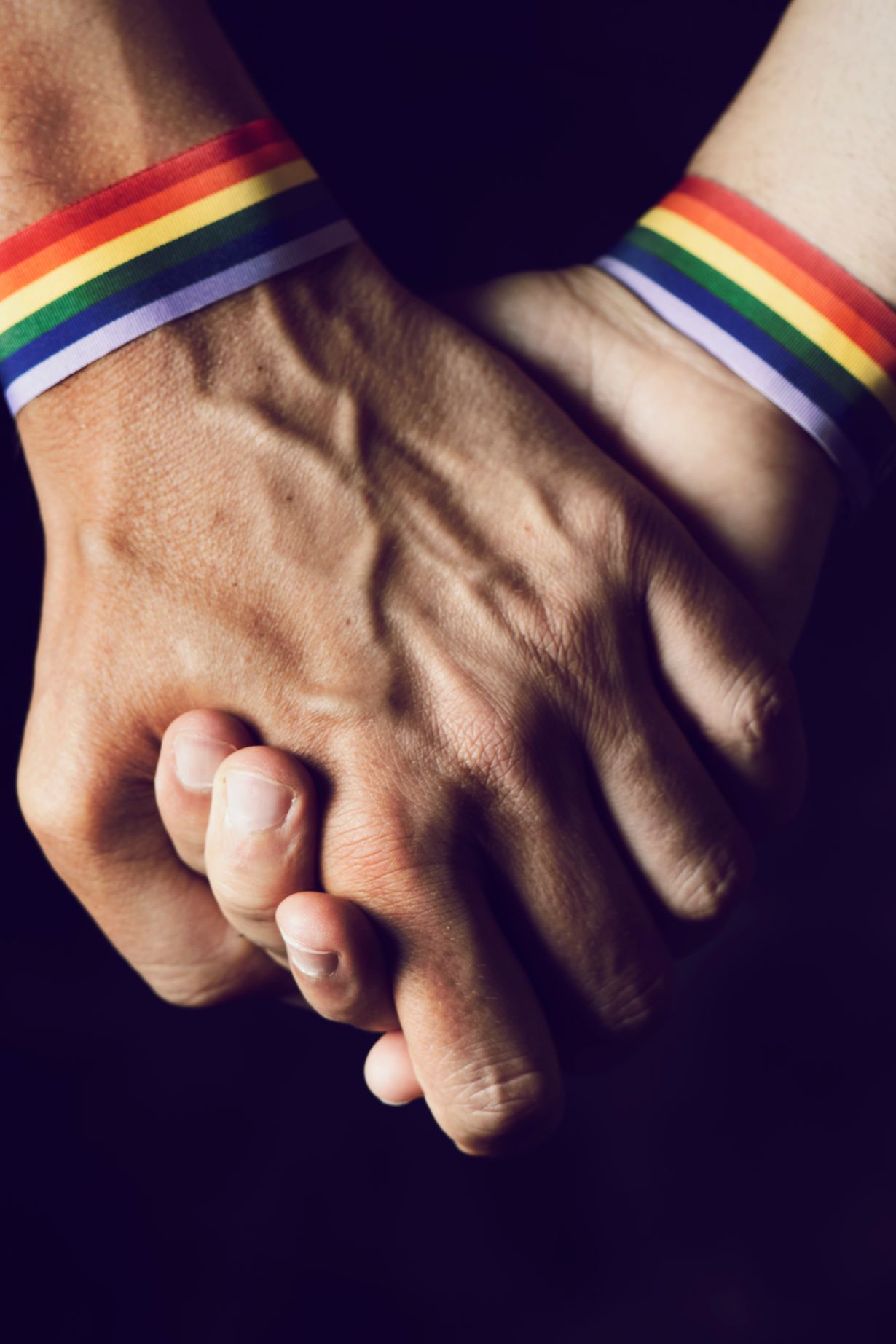
Everyone is equal under the rainbow of diversity.
The Federal Ministry for Family Affairs is committed to promoting the rights of LGBTI persons and therefore supports the LGBTI Strategy announced by the European Commission. The aim is for rainbow families within the EU to receive full recognition and to enjoy the right to freedom of movement. This objective is to be advanced not only within the EU but also across all of Europe, namely in conjunction with Germany's Presidency of the Committee of Ministers of the Council of Europe.
Online conference: "Intersectionality and LGBTI Policies in Europe"
How significant is the new Strategy by the European Commission for LGBTIQ equality? This was the focus of discussion at the international conference entitled "Intersectionality and LGBTI Policies in Europe: Lived Realities of Lesbian* Women and the Recognition of Rainbow Families". More than 400 participants from across Europe joined the event on 18 and 19 November. Among them were also the EU Commissioner for Equality, Helena Dalli, and the Secretary General of the Council of Europe, Marija Pej?inovi? Buri?.
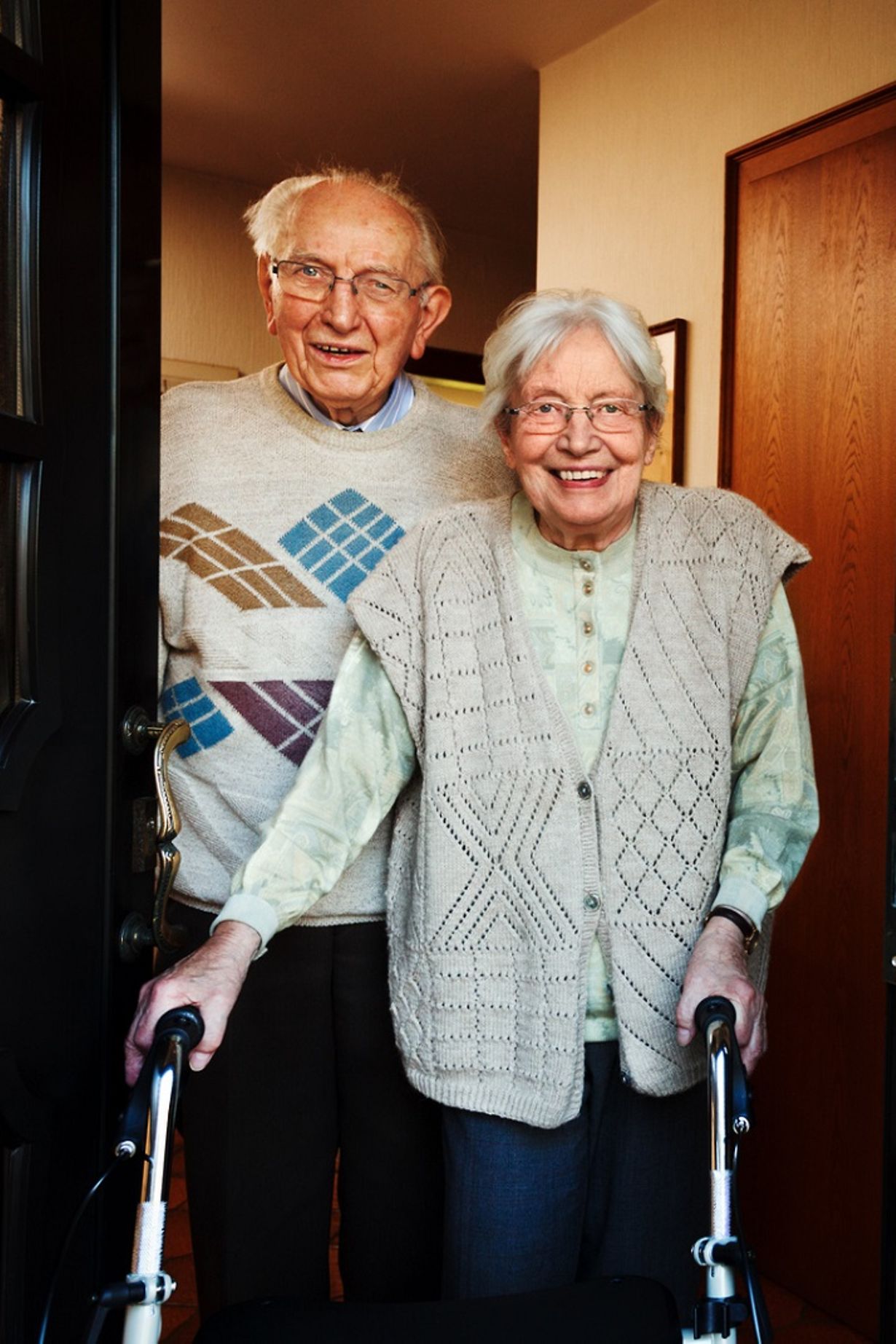
Working together for older people.
People in Europe are getting older and at the same time are in good health. This is a stroke of luck for whole generations. During the COVID-19 crisis, older people across Europe have been severely restricted in their everyday lives. Social distancing has been particularly challenging for people living on their own or in nursing homes. The Federal Ministry for Family Affairs aims to strengthen the rights of older people and their equal participation in an increasingly digitalised society and to promote their best interests. This will strengthen cohesion across generations and countries.
#AgeingEU2020
An online conference took place at the end of September on strengthening the rights of older people in times of digitalisation. More information on the two-day event under the hashtag #AgeingEU2020 is available in the programme and the booklet. Various video recordings of the online conference are available on YouTube. In addition, a documentation of the conference was published and the European Agency for Fundamental Rights presented a background paper on age and digitalisation.
Council conclusions
In mid-October 2020, the Council of the European Union adopted conclusions on "human rights, participation and well-being of older persons in the era of digitalisation". More information can be found in a press release by the Council.
Trio Presidency Declaration on Ageing
Germany, Portugal and Slovenia successively hold the Presidency of the Council of the EU and form a presidency trio at EU level with a joint programme. In this context, Federal Minister for Senior Citizens, Franziska Giffey, her Portuguese counterpart Ana Mendes Godinho und her Slovenian colleague Janez Cigler Kralj signed the Trio Presidency Declaration on Ageing.
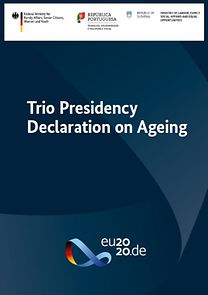
Trio Presidency Declaration on Ageing
Germany, Portugal and Slovenia signed the Trio Presidency Declaration on Ageing.
